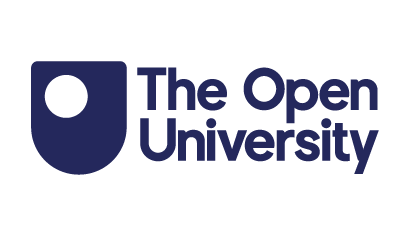Mental Health: Working with Children and Young People
Gain critical knowledge and practical skills to identify and address mental health issues in children and young people.
Duration
12 weeksCost
$1,009

Unlock your ability to support the mental health of children and young people
It’s estimated 75% children and young people who experience mental health problems aren’t getting the support they need (Children and young people, Mental Health Foundation). If you work with children and young people under 18, it’s crucial you have the knowledge and skills to help them.
This microcredential will support those working in health, social care, and education to develop essential skills to understand the mental health issues experienced by children and young people, and the interventions that can help to address them.
With a focus on children and young people’s developmental stages and social environments, you’ll develop your understanding of theory and practice which will enable you to identify and implement appropriate support strategies.
Explore childhood development and the influences on mental health
You’ll start by investigating neurological, cognitive, emotional, and psychosocial development, expanding your awareness of how the brain develops throughout childhood and the role of people who are significant in a child’s growth, such as parents. You’ll also gain skills to support children and young people’s psychological wellbeing using proven therapeutic approaches.
Discover common mental health issues and effective mental health interventions
Over 12 weeks, you’ll build your understanding of the most common mental health issues experienced by children and young people including anxiety, depression, and challenging behaviour. You’ll also explore the mental health impact of special educational needs, bereavement and grief, eating disorders, gender identity and sexuality.
This microcredential will develop your ability to see the signs of mental health issues and identify risk factors. You’ll also explore effective mental health interventions, such as working therapeutically to build relationships and developing skills to actively listen, all to help you put children and young people at the centre of their support plans.
Expand your skills through highly relatable examples and psychological theories
Throughout the course, you’ll benefit from real-world examples from across health, education, and social care sectors.
You’ll have the opportunity to engage in personal reflection, and to put theory into practice, by immediately using the tools and techniques that you learn in your own context.
Learn from the experts in health and social care
This microcredential has been created by academic experts at The Open University who have a reputation for transforming lives through world-class health and social care education and research. For over 30 years, they have been delivering online learning in health and social care that is used in a range of professional contexts as well as non-professional backdrops such as parenting and family life.
Apply your growing mental health knowledge throughout the course
Each week, you’ll have the opportunity to consolidate your learning through reflective activities that will form part of your final assessment. In addition, you’ll write an assignment based on a real-world case study in which you’ll be able to demonstrate your new skills, including writing an argument for diagnosis and an intervention plan.
By the end, you’ll have the skills and confidence to support children and young people with their mental health. You’ll also explore how your own background influences your approach and develop a better understanding of your mental health to benefit both your personal life and career.
What skills will you learn?
- Assessment of mental health issues using diagnostic categories and therapeutic tools
- Identification of barriers to mental health and wellbeing in children and young people
- Design evidence-based mental health interventions
- Application of psychological theories to work therapeutically with children and young people
- Design activities for increasing children and young people's wellbeing
- Reflection on existing knowledge, practice and skills
- Application of counselling concepts
- Critical thinking
What you will achieve
By the end of the microcredential, you’ll be able to...
- Describe the key mental health issues that children and young people experience and the common factors that contribute to their development
- Explore issues of presenting problems and intervention planning when working with children and young people
- Apply counselling concepts to support children and young people and create effective therapeutic interventions
- Reflect on how your personal and professional backgrounds influence your approach to working with mental health issues
Are you eligible for this microcredential?
To study this postgraduate microcredential you will ideally have:
- A Bachelors degree, or an equivalent level qualification
- Experience of working with children or young people under 18 years old. This will enable you to reflect critically and build on previous experiences, however case studies will support learning.
If you do not have a degree or equivalent level qualification you may find the postgraduate level assessment challenging.
The course material does not assume that you are currently working. Past experiences will be just as relevant.
Is this microcredential right for you?
This microcredential will benefit those working or looking to work with children and young people under 18. It is relevant for a range of roles including:
- Health and social care practitioners, including nurses, social workers and allied health professionals
- Social work assistants, healthcare and support staff
- Teachers and other education professionals
- Youth workers, youth offending and secure estate roles, police, and local authority staff
- Sports and youth club practitioners
- Parents and carers
It has a global focus and delivers transferable skills for diverse organisations.
Syllabus
What happens before, during, and after your microcredential
Before learning
You’ll have access to our online welcome area where you’ll be able to read any information relating to your microcredential.
Course
From 24 Jun 2024
Mental Health: Working with Children and Young People
Develop tools and techniques to support children and young people with their mental health.
12 weeks
13 hours per week
After learning
Your submitted assessment will be marked and graded by subject matter experts. You’ll continue to have ongoing access to the course materials.
What you will receive
15 UK Credits at Postgraduate level from The Open University and a certificate
Academic credits are awarded on passing the final assessment. These will be at postgraduate level 7 of the Framework for Higher Education (England, Wales and Northern Ireland) / level 11 of the Scottish Credit and Qualifications Framework.
Find out how credits work and where you can use them in our FAQs.
What is a microcredential?
Microcredentials are designed to upskill you for work in rapidly-growing industries, without the time and cost commitment of a full degree. Your microcredential can stand alone as an independent credential, and some also offer academic credit to use towards a degree.
Complete online courses led by experts over multiple weeks with a dedicated group of professionals.
Test your understanding with online tutor-marked assessments and exercises.
Finish your learning and pass your assessments to gain an accredited credential.
Use your microcredential as evidence of your specialised skills and progress further in your industry.
Career-focused learning by The Open University
As the UK’s largest university, The Open University (OU) supports thousands of students to achieve their goals and ambitions via supported distance learning, helping to fit learning around professional and personal life commitments.
Established
1969Location
Milton Keynes, UKWorld ranking
Top 510Source: Times Higher Education World University Rankings 2020
Delivered by experts
Senior Lecturer in the School of Health, Wellbeing and Social Care with research interests focusing on the intersection of practice-based learning and care.
Rick Murphy is a systemic psychotherapist, senior lecturer in psychology at the University of Northampton and a lead educator for the Open University.
Learning on FutureLearn
Your learning, your rules
- Courses are split into weeks, activities, and steps to help you keep track of your learning
- Learn through a mix of bite-sized videos, long- and short-form articles, audio, and practical activities
- Stay motivated by using the Progress page to keep track of your step completion and assessment scores
Join a global classroom
- Experience the power of social learning, and get inspired by an international network of learners
- Share ideas with your peers and course educators on every step of the course
- Join the conversation by reading, @ing, liking, bookmarking, and replying to comments from others
Map your progress
- As you work through the course, use notifications and the Progress page to guide your learning
- Whenever you’re ready, mark each step as complete, you’re in control
- Complete 90% of course steps and all of the assessments to earn your certificate
Want to know more about learning on FutureLearn? Using FutureLearn
What are our learners saying?
Add a new skill or forge a new path
"I recommend Futurelearn to anyone looking to learn and upskill...If you are in the job market, you might want to add a new skill or forge a new path."
They bring the classroom right to you
"FutureLearn courses are always interesting and informative. They bring the classroom right to you and send you on a journey to explore new ideas and offer interesting topics."
When would you like to start?
We aim to run our microcredentials every few months. Join on the date that suits you or register to hear about future runs and updates.
Not ready to join yet? Register to find out more
Find out more
Not sure if microcredentials are right for you? Fill in your details below and we will send you more information to help you make a decision.
FAQ
We can accept payments made by card (Visa, Mastercard and American Express) or PayPal via our online system.
You will have 14 days from the day the course starts to apply for a refund. If this Microcredential has any non-refundable costs they will be stated in the ‘Overview’ section above. You can find more information in our cancellation and refund policy.
Microcredentials are designed to fit around your life and timezone.
There may be live events as part of your studies, but these will be recorded and can be watched afterwards if you aren’t online for the live broadcast.
No, microcredentials are designed to be taken anywhere in the world. You won’t need the right to study in the country where the university offering the microcredential is based.
Microcredentials are stand-alone courses designed to meet specific learner and employer needs. Those awarded by The Open University have academic credit value at either undergraduate or postgraduate level, and, if appropriate, this may be used towards selected Open University qualifications. For more details, including eligible qualifications, visit The Open University’s Counting microcredentials towards OU qualifications page.
The credit awarded may potentially be used at another university, subject to the agreement of the receiving institution.
Want to know more? Read the microcredential FAQs, or contact us.

